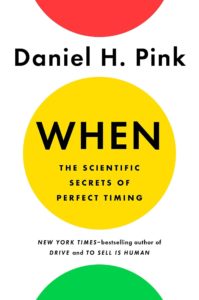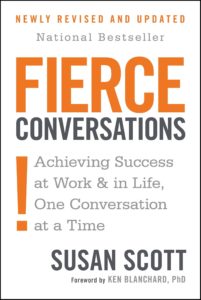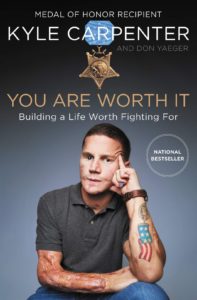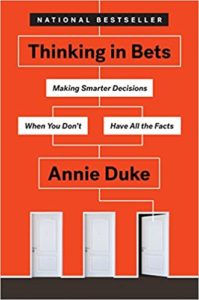While there are dozens of amazing new books coming out all the time, I find that reflecting on some of the more impactful lessons from past reads can be highly effective.
This week I’m highlighting several of my “go-to” favorites that are timeless, unique in their lesson, and always relevant. You’ll notice that one selection is not a business book at all – and that’s the point. Great businesses hire, retain, and attract great employees, loyal clients, and produce enduring success.
It’s no secret that focusing on the human equation is harder work that requires substantial effort thereby producing consistently superior results. It is also not a secret that the path requires more of leaders; more depth, more commitment, and more personal investment.
That is why great organizations remain the exception, rather than the rule. Here are four suggestions for keeping your team, organization, or company on the path of greatness: 4 Book Recommendations to Move From Good to Great.
The illusive problem of ‘when’: #1 When: The Scientific Secrets of Perfect Timing by Daniel H. Pink
 In my executive coaching practice, we use the Talent Dynamics assessment to create common language, assess individual genius, and apply that information to drive team success.
In my executive coaching practice, we use the Talent Dynamics assessment to create common language, assess individual genius, and apply that information to drive team success.
The four main ‘frequencies’ represent the four natural motivations described as what, who, how, and when. Most of the entrepreneurs and executives we work with land in the realm of those who ask: what, who, and how. The Genius that has an innate sense of timing, naturally asking ‘when’ is only 5% of the leaders we work with.
This is why Dan Pink’s book, When, is priceless as it forces us to solve the question that is infrequently asked. In his original take on motivation in his book, Drive, he reflected on the fact that business denies what science knows. This time he takes on the challenge of addressing what we so frequently overlook when thinking through issues, strategy, and planning in our business. As you read through this book, I encourage you to keep asking yourself where you might have tried to solve a ‘when’ problem with a ‘what’, ‘who’, or ‘how’ answer.
When I skip meals, I overeat; when I skip conversations, I overreact: #2 Fierce Conversations by Susan Scott

Susan Scott is a personal hero of mine in our mutual industry of business and leadership coaching.
In her book she addresses what nearly every coach has encountered: conversation avoidance. Many do this out of an abundance of concern for others well-being, however is it the opposite of kindness to avoid, be circumspect, or sugar-coat when delivering messages.
Any leader or team I’ve coached (or led) has listened to me reiterate that a ‘comfortable’ environment is not my focus or concern, but rather a ‘safe’ environment is the goal. In fact, growth is inversely proportional to comfort.
Dr. Scott will help guide you through the power of fierce conversations and the remarkable movement you will experience when people are speaking their truth. This is much different than simply using a buzzword, like ‘transparency’. This is about exploring, through conversations, the root cause of the issue and working to solve it, rather than circle around various symptoms ad infinitum.
Mission, purpose, and value: beyond monetary reward: #3 You are Worth It by Kyle Carpenter
 You very well may have seen Corporal Kyle Carpenter, Medal of Honor recipient, speak to his heroism when he threw himself on a live grenade to protect a fellow Marine.
You very well may have seen Corporal Kyle Carpenter, Medal of Honor recipient, speak to his heroism when he threw himself on a live grenade to protect a fellow Marine.
This is an astounding amount of courage from a young man with an incredible practical approach to core values. The title of his book is his verbal response when encountering any civilian that happens to utter, ‘thank you for your service.’
This book makes my list for its clarity of purpose. As mentioned above, the four frequencies in the profiling tool I referenced above are what, who, when, and how. The unifying question that is woven throughout them is: ‘why’.
At Leader’s Cut, articulating your personal and professional ‘why’ is foundational in the work we do through executive coaching. When you read what Corporal Carpenter has to say about what he values as well as the real world struggles that come with catastrophic injury having put those values to the test, you cannot help but walk away permanently changed.
Life isn’t Chess, it’s Poker.: #4 Thinking in Bets by Annie Duke
 You likely recognize Annie Duke as the professional poker player she is rather than the typical leader or researcher that writes about business.
You likely recognize Annie Duke as the professional poker player she is rather than the typical leader or researcher that writes about business.
As I write this, we are in the era of Covid, where I typically describe the main concerns of a leader / business owner as this: they do not want to place too large of a bet too soon lest they are out of the game early. Secondarily I follow this analogy with a second, the executive / owner also doesn’t want to be voted off Survivor with two immunity idols in their pocket.
Ms. Duke has a humble and profound way of helping business people think differently about their sense of self. Most notably, owning up to when we win because we were lucky, when we win because of skill, and when we win because somebody else made a bigger mistake than we did.
This book pairs nicely with Fierce Conversations in that it represents the mental conversations professionals have to relentlessly challenge themselves in order to build to and remain great.
Conclusion
We have seen that implementing new concepts – even a new take on an old concept, takes effort and time that is well worth the reward personally and professionally. In our work providing business coaching services at Leader’s Cut, we work with leaders in an interactive and individualized coaching relationship to help them build stronger teams, make better decisions, and deliver consistent, impactful results in their professional and personal lives.
If you’d like to see how executive coaching can help you achieve your professional goals or have questions about whether business coaching is right for you, let’s talk. Contact me to schedule a 15-minute coaching consultation to discover what business coaching is (and isn’t) and how it can serve you and your business.




